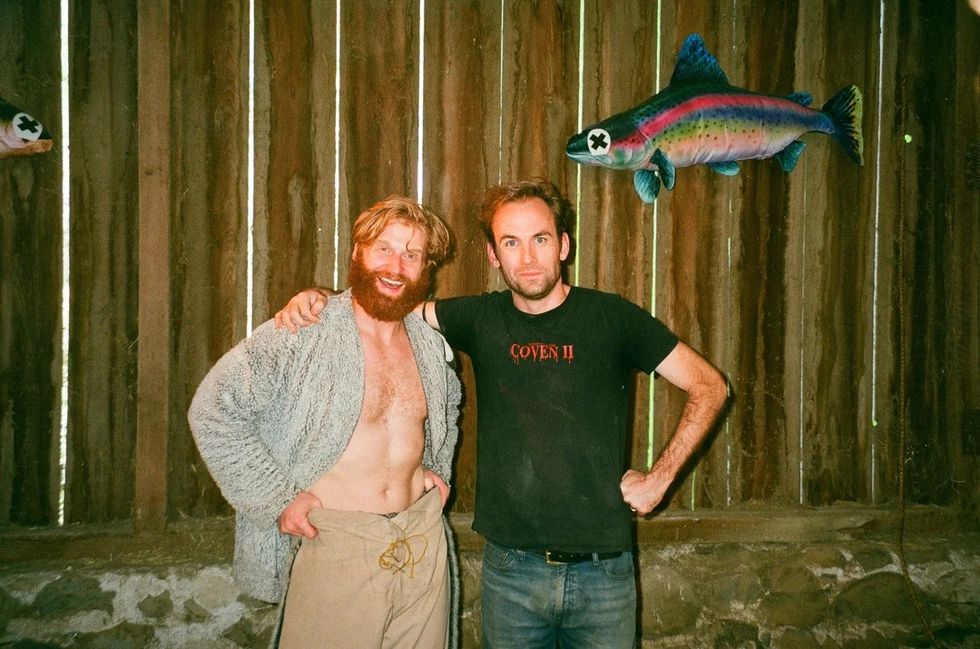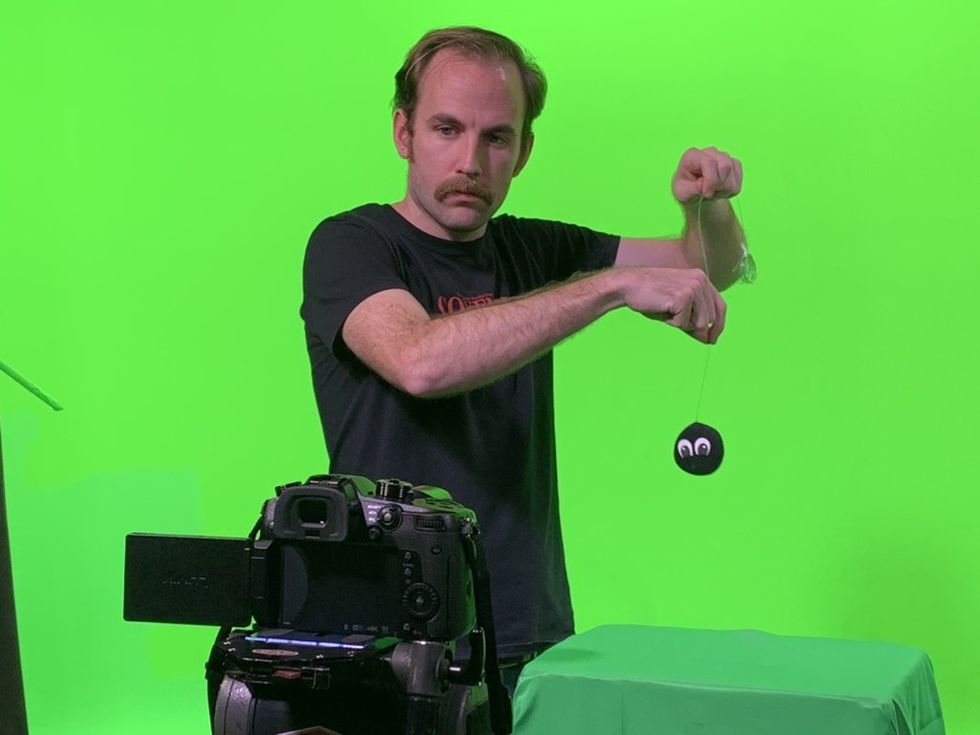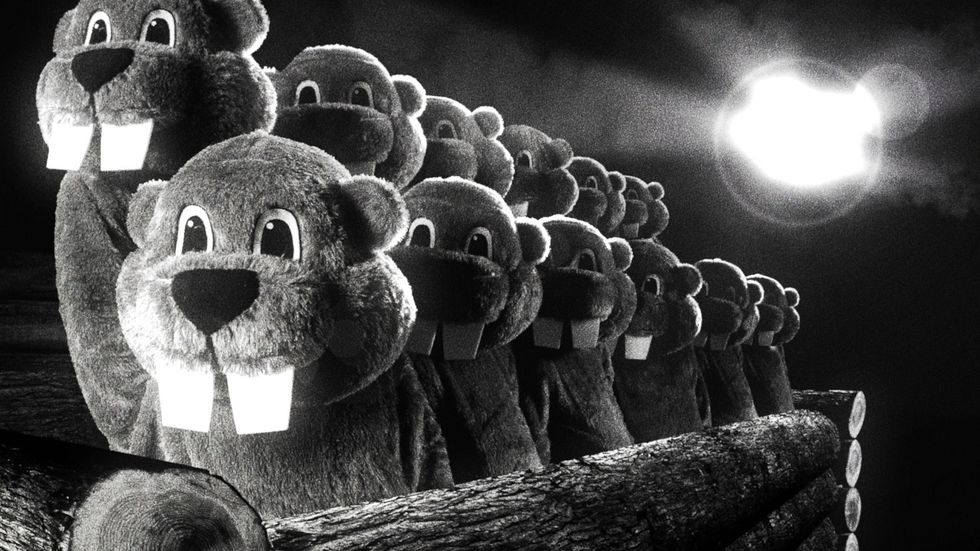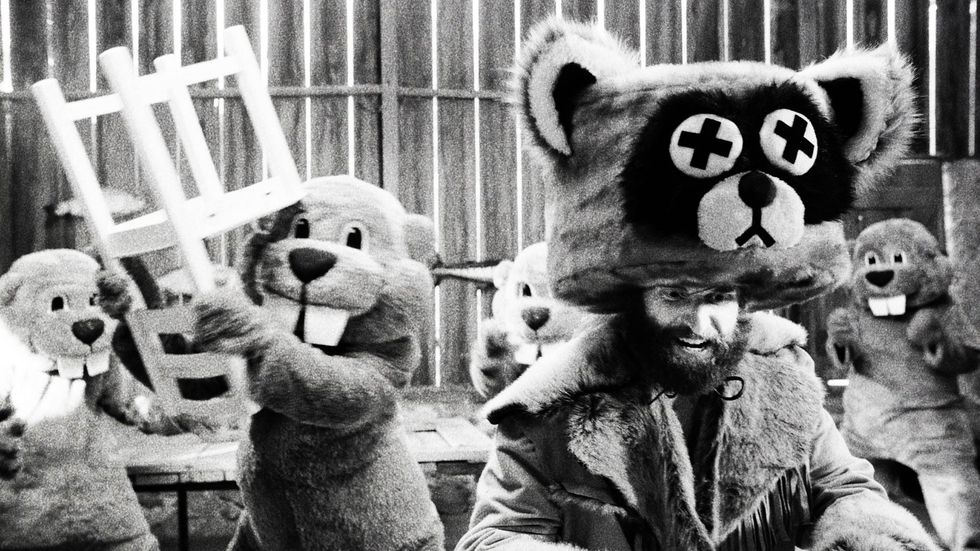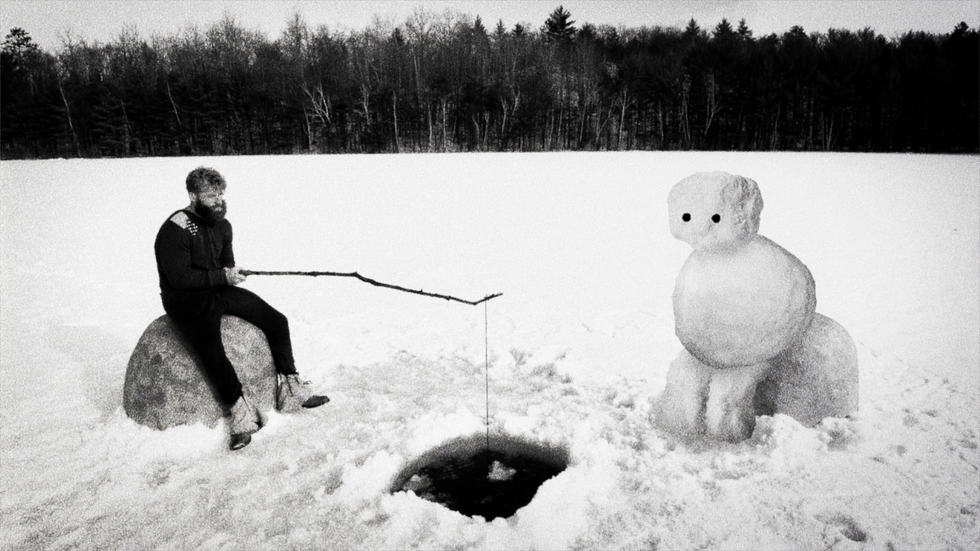Can You Make It as a Commercial Director Without Film School? [Interview]
Short answer: yes. Jordan Brady has created a decades-long career without ever attending film school.
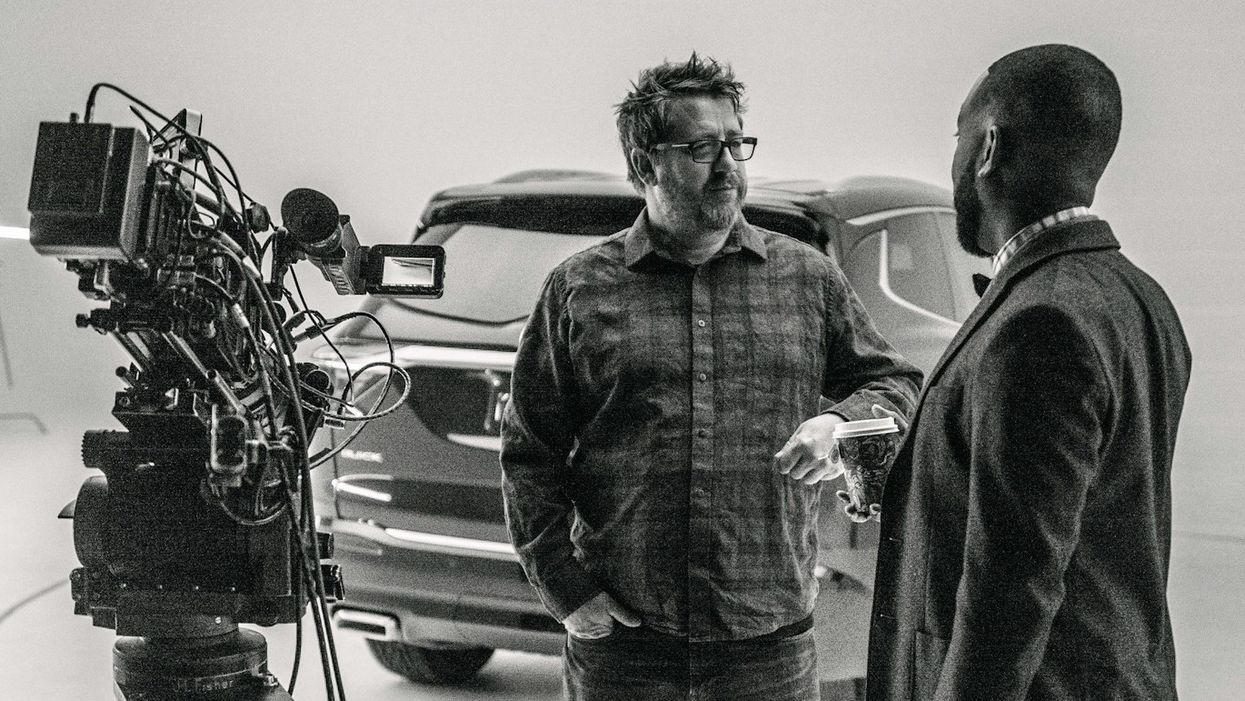
A long, successful creative career often incorporates multiple storytelling forms and income streams. Without attending film school, director Jordan Brady has built a decades-long career encompassing comedy, acting, and directing features and commercials. He has directed over 1,000 commercials for clients ranging from Kellogg to Ford to Toyota. He also teaches the business and art of directing both through his well-regarded Commercial Directing Bootcamp and Respect the Process podcast, which currently has 300 episodes.
We sat down with Jordan recently to discuss what it takes to start and maintain a career directing commercials without attending film school.
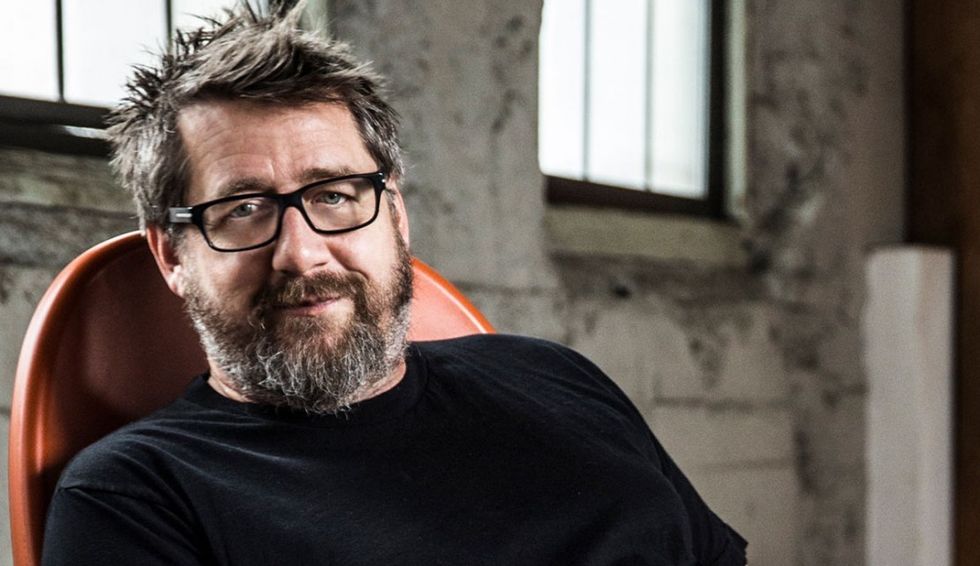
NFS: What was the path that led you to direct commercials?
JB: I started as a stand-up comedian and fortunately during the comedy boom of the eighties, I got to be on a lot of television shows. That introduced me to production. Then I hosted a show on MTV and a kid’s show on NBC, one of which I started directing. I was fortunate to get a video camera and teach myself how to shoot and how to edit and I read a lot of books. I started to shoot promos and developed campaigns for Comedy Central.
Then I got an opportunity to pitch NBC for their Saturday morning campaign. I sold the campaign, that got me into the Directors Guild, and I was able to direct and produce a promo campaign. They’re a little different than ads, but it’s the same kind of 15 or 30 second kind of thing.
I wrote a script and pitched the idea for a feature film called Dill Scallion. I pitched it in 10 seconds: country music meets Spinal Tap. We’d shoot for a few weeks, cobble together scenes that I would edit, and I would go around town pitching, raising funds. One production company said, “no, we’re not going to give you money for your indie film, but we want you to shoot this commercial.”
NFS: That’s quite a journey. Who was the commercial for?
JB: It was for WD-40, the very popular lubricant spray. I had no idea what I was doing. I didn’t know the rules, but I got the gig. So, you have WD-40 and you’re shooting your first commercial and you have no idea what you’re doing, what do you do? I just told the story as funny as it could be. I used as much of the crew that I could get from the feature and the production company helped me with a line producer. I don’t remember much agency interaction, they had a script and basically said, “just go shoot it.” So, I really just winged it.
NFS: Winged it? Does that kind of thing still happen to people breaking into directing commercials?
JB: I don't want to say winging it is the equivalent of “fake it till you make it.” By the time I got my first commercial, I had done multiple network promo campaigns that I conceived and directed. I kind of knew what I was doing, and I had shot enough. The best experience I had was self-taught editing because editing informed me as a director as to the cutting pieces you need when you're on set.
People that get an at-bat in commercials today have a better, more polished film making game than in my era, the democratization of the filmmaking tools. I had to raise $20,000 to buy a computer with a 4GB hard drive the size of a lunchbox to edit to nonlinear. Nowadays, young people that are filmmakers can teach themselves and be a Swiss Army creative and do everything. I think they're better prepared when they get that first opportunity. However, I do see the same proportion of people coming into commercials with no clue of the process of commercials.
NFS: Which people do you lean on most to be successful in creating commercials?
JB: The triumvirate of the DP, stylist, and production for creative. The hardest thing for me to learn was to delegate versus giving marching orders to people. You get so much more when you tell them what you want and let them bring their best game to you. On the other side, you have the AD and the line producer, they manage the production.
NFS: Can you walk us through your process for shooting a commercial?
JB: it goes like this: you're awarded the job. You do either a detailed shot list or storyboards. It's like Joseph Campbell's Hero's Journey, you then gather your allies and give everyone the overall mission of what you're trying to accomplish. You cast the actors, if there are actors involved, that is crucial. You also have a tech scout. The tech scout for shooting a spot or commercial is essential. It is the dry run of the day, without actors of course, and all the logistics are covered. I like to go through what the creative is so that the creative leads the logistics and not the other way around.
I always do a preamble with the crew before they start saying where the generator is going to be and where the video village is going to be. I tell them the story. “This is about making mayonnaise and how mom and son bond over the delicious mayonnaise that she puts on his sandwiches every morning.” And I explain the joke, the dad comes in and slips on a banana peel, that's going to take place in the kitchen. The son and the mom laugh. They should be in the morning light. Now all the technicians are listening to me going, “oh, so we should use that window.”
Then we go to the pre-production meeting with my producer, myself, the ad agency team and the client. This is often the first time where I meet the client. They’ve maybe had a phone call with us, but probably not. Then you go to the shoot and you shoot the things that you agreed upon at the pre-pro meeting. And hopefully, that's where magic strikes and lucky accidents happen.
At the end of the shoot, you high five and typically in America the agency takes the footage and works with an editor and she takes over that process and puts it all together. The Brady method means that you stay in touch with the editor or if you can, you go into the edit before the agency comes in and you get your vision in a cut so the agency sees your vision realized and at a certain point the director can walk away. In Europe, as many people know, the director shepherds the whole edit. I have clients where I do the edit. That's a money saving thing and I like it because then I can execute the vision. But a director could high five everyone at the end of the shoot and be done.
NFS: What about the creative aspects of commercials?
JB: I always say that commercial directors, we are midwives for the agency and client. They're the ones having the baby. You're just going to deliver it. And I say that with great pride, right? But you have to recognize that it is their commercial. A commercial is not your Citizen Kane, but that is not mutually exclusive from being 110% passionate about the commercial. In fact, I think I love the commercial more as a midwife because I'm allowed to tell the truth. I don't care about anything but what's best for the spot.
NFS: Do commercial directors specialize?
JB: I think commercial directors have a more successful career when they balance variety in their work with specialization. My specialty is, the marketplace tells me this, comedy dialogue with a certain tone of humor. My goal is to find my voice as a comedic storyteller in 30 seconds. That's my goal, no matter how old I get, to hone my comedic voice. The biggest compliment is when another executive producer or director or someone will text me and ask, “did you make that commercial?” That's the biggest compliment because it says that somehow my voice came through in that piece.
You also need to have different specialties. There are pockets of creatives that know me for different things. There was a three-year stint in New York City that I was known as a kid’s director, but outside of that market, I didn't do a lot of work with kids. It was because I had a couple of spots that happen to have kids. I worked with a creative director at Leo Burnett back when I started. He had me do commercials for Kellogg's fruit snacks. We did a commercial with an animatronic shark. Eight years later he calls and says, “hey, I got this thing, I'm going to do an anthropomorphized bear and bull for a stock market app. I thought, who better to do that than Jordan Brady? You're the guy that specializes in people wearing suits like animals that talk.” I mean that's pretty crazy, right? And I said, “I'm the king of people wearing anthropomorphic suits.”
NFS: How do you work with budgets?
JB: You know the budget before you bid on a commercial. If you pitch a vision to execute the spot or campaign, that is beyond the means that you’ll be given, you’ll fail. You have to scale your vision or at least know how you’re going to pull it off. Are you going to invest? Personally, I have invested in projects. You work with the line producer to say, “I really want this” and he or she will say, “well then why don't we put the money into a crane or a MōVI or a Steadicam? Or can you get away with a slider?” You talk it through with those same teammates. Or if you want a special suit of armor, it's got to be custom made, because you're doing a Game of Thrones spoof. Then maybe the other things are off the rack from Ross Dress for Less. As a director, I don't even deal with that. I offer ideas, but I say I'll leave it up to you, come back to me with things we can and cannot do. So, with the lower budget stuff, you have to be creative. Surround yourself with smart people, delegate to elevate.
NFS: How about working for free?
JB: Yes, if it's great creative and you can pull it off. But, do not expect the people that you worked for free to hire you again. That's the dirty secret. You think, “oh I'm going to do this agency or client a favor. And if it's a hit, I bet the hire me next time when they have more money.” They won't. Instead, they'll see you as the guy that did it for free. That's the Catch-22.
NFS: What’s the most common misconception people have about directing commercials?
JB: I think the most common mistake people make is they think that the director writes the commercial or they think the director is supposed to rewrite the commercial. I go back to my midwife analogy. The agency had an art director and a copywriter and a creative director team that vetted this idea and it serves a brand message. It serves an agenda. I was in the editing room and someone was saying, “we ought to write a funny end card at the end of this spot.” And I said, “but you guys aren't copywriters and you're not art directors. So, you're going to randomly place text on a screen that you think is cool, that you think is funny?” A misconception is that the director does it all.
NFS: Is it practical to specialize and make a career out of only directing commercials?
JB: Yes and no. Once you step out of the commercial world and you come back six months to a year later after making your indie or studio film, you've got to start from scratch. People have changed. They went to different agencies. Your reps are different, the market's changed. Your reel is not as relevant unless your movie's a big hit. Then you can cherry pick commercials all day. So that's a reason to focus on commercials. My three-year stint turned into 17 years of commercials.
The reason not to make commercials your sole career in 2019 is that there are more people entering the competition. The tools make it easier for people to get in. And that's cool because hopefully, that means more voices will be great. Also, if you don't have complete ownership over some sort of passion project, I think you as a filmmaker will drive yourself nutty, hence documentaries, podcasts, and side gigs.
NFS: How do you improve and maintain a career as a director?
JB: You have to keep your reel relevant. You can't just rest on your spot. It's like if you made a film that went to Sundance last year and it didn't get you a new film or an episodic directing gig, you’ve got to make something new. Likewise, if you haven't made a commercial that's gotten you more commercials, you’ve got to make a new commercial or a short film or some sort of experimental piece, music video, something to show that you're relevant. You also know, relationships are a commodity, I do favors. If a creative asked me to punch up a script that I'm not right to direct, but they know they can call on me, I will do that in a heartbeat. Right? It's not about the short-term transaction of being hired to direct. It's about the give and take with relationships. But you have to communicate with your team, your reps and executive producers, like a businessperson about where you want your career to go. I teach it at my boot camp, the three R’s: reel, revenue, and relationships. The fourth R is repeat business because those people that you're friends with will want to work with you again. And the cool thing is people in advertising, on the client's side, the agency side and the crew side, are all really fun people.
NFS: Is it important to have a distinct voice?
JB: People always ask, how do you find your voice? And I don't know the answer. You just have to work at it. It's why the podcast is called Respect the Process. You can't force or rush the process. I think authenticity makes things funnier. And I think authenticity also, is again, part of your voice. I want my voice to come through in the spot.
NFS: This is such a specialized art form, is the only way to become a better commercial director to direct commercials?
JB: Yeah. Your 10,000 hours, you just have to do it. But here's the good news. You can take your iPhone and a Barbie doll and Ken doll with a GI Joe. Now you have a love triangle and you can shoot it and edit it and see if you can tell a story in a 30 second, 15 second or 8-second spot. The 8-second spot, snackable content is fun. I love it. You can get four shots in six to eight seconds.
You always have to be upping your game.
Thank you, Jordan, for sitting down for this lengthy interview. If you're interested in trying out an episode of his podcast, we'd recommend trying, "How Director Toby Wosskow’s BMW Spec Spot Landed Him An Ad During the NBA Finals."

